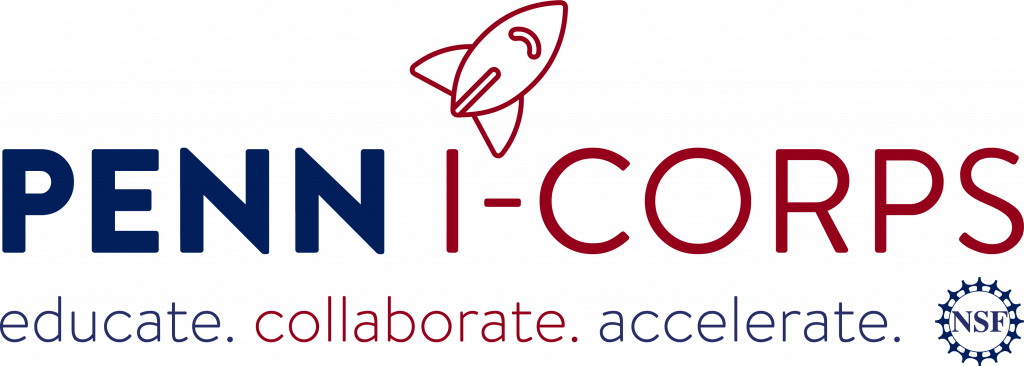Penn I-Corps, launched in 2015, is an early-stage accelerator funded by the National Science Foundation (NSF) and managed by PCI. As a result of the program’s longstanding success, Penn was recently chosen to participate as a founding member of the National Science Foundation’s new innovative I-Corps Hub initiative which forms the new operational backbone of the Innovation Network of NSF.
I-Corps in FY21
Twelve teams participated in the Fall 2020 cohort and ten in Spring 2021. Both cohorts were offered virtually, enabling the refinement of innovative techniques for online teaching. A wide range of technology types was represented, including artificial intelligence, diagnostics, drug development, information technology, materials, energy, medical devices, and therapeutics. The innovations solve problems in various domains, such as cardiovascular medicine, OB-GYN, pediatric care, mental health, energy efficiency, education, and women’s health. A recurring theme is applying artificial intelligence to areas as diverse as accessibility, finance, human resources, drug discovery, and education.
Penn I-Corps History
Since its inception, Penn I-Corps has trained 148 teams and 312 individuals. Seven teams have participated in the National I-Corps program, and eight teams have subsequently been awarded SBIR/STTR grants. To date, 6 I-Corps company graduates have reached the stage of generating revenue, and 37 have cumulatively received $31 million in external funding support from various sources, including professional VC investors. Overall, 104 jobs have been created by program graduates, and three companies received the President’s Innovation Prize.
- UroGenie (Spring 2020) – a novel hardware/software solution company to measuring urinary flow in both the office and home, with wireless data upload into the EMR for increased workflow efficiency and searchable data. The company was also recently awarded an SBIR stage II grant.
- Infini Fluidics (Fall 2020) – a company developing a microfluidic platform that satisfies manufacturing needs of injectable drug particles from lab scale to commercial scale that recently received an NSF Phase I SBIR award.
- Neuroflow (Fall 2016) – a company providing leading solutions for population health, behavioral health integration, and collaborative psychiatric care that was recognized with the 2021 PACT Enterprise Awards as a Healthcare Innovator.
- Percepta (Fall 2019) – a company developing technology to detect shoplifting in retail stores in real-time to catch incidents that loss prevention personnel often miss. The company was recognized by Technical.ly Philly among Philly’s young tech companies to watch this year.
- Quantaras (Spring 2018) – is developing its Automatic Anatomy Recognition software (AAR) to reduce the time needed for recognition, delineation, and identification of anatomical objects and diseased tissue to 15 minutes on MRI, CT, and PET/CT imaging. The company recently received critical 510(k) clearance for automatic anatomy recognition for radiation therapy. Formerly named QRS.
